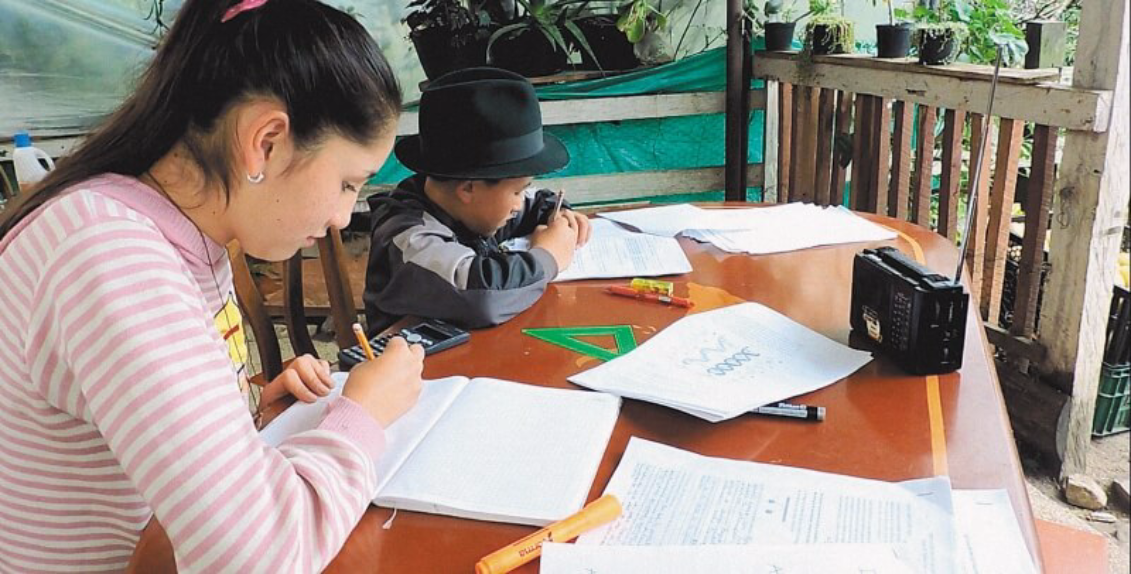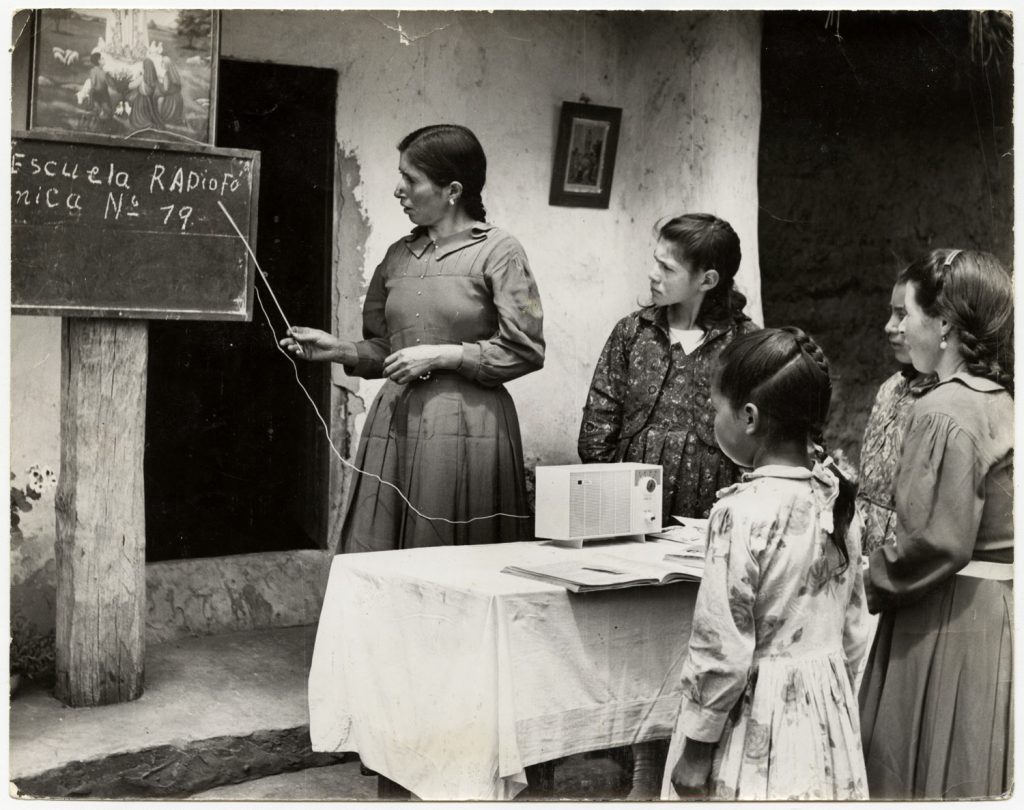
The radio makes school in the countryside in times of coronavirus
In Colombia, rural communities are resuming a strategy from the last century to continue the education of children while sheltering from the pandemic: radio.
For 40 years Radio Sutatenza operated in Colombia, an initiative led by Father José Joaquín Salcedo Guarín to contribute to the education of the peasant population in 1948, when the lack of roads and other means of communication made that the only practicable alternative.
With the support of the state, the church, dozens of lay volunteers and the creation of booklets and the newspaper El Campesino (The Peasant), Radio Sutatenza took on the slow, patient and constant task of educating the country's rural population.
In many cases, those who benefited from this project - the first of its kind - were adults who would otherwise have remained illiterate for the rest of their lives.

Since the National Government of Colombia announced the cessation of school activities and then the beginning of quarantine (which for school-age children will last until May 31, as foreseen for the time being), attempts have been made to implement the use of virtual classes.
However, despite the fact that in most of the national territory there is some kind of Internet penetration, in most cases it is not enough to have class by Zoom or any other similar platform, although there have been some success stories.
What Colombia does have in abundance, fortunately, are community radio stations, particularly in rural areas. According to El Campesino - a version of the original newspaper founded by Radio Sutatenza - Colombia currently has 626 community radio stations, and 187 more are about to be added.
RELATED CONTENT
Taking advantage of this network of community radio stations, the department of Boyacá, in the heart of Colombia, several initiatives have recovered the experience of Radio Sutatenza to continue the training of its students during the pandemic.
Some of these have been carried out by educational institutions that have between 200 and 800 students scattered throughout the department's mountainous terrain. In these cases what they have done is that for one hour a day, a teacher explains to the students how to make the cards that the school gives them every two weeks.
According to El Espectador, the Boyacá Education Department has created its own radio program. Community radio stations in the 123 municipalities that make up the department are linked to it and offer the service to children who would normally attend 254 educational institutions in a department with a rural population of around 50,000.
It is clear that it is one thing to get access to the word of teachers and another to know whether the quality and quantity of the education students receive is adequate or sufficient for their needs. But it is also clear that without the former, the latter will not come into being.
For now, this old trick is proving to be an option to alleviate the difficulties faced by millions of families throughout Latin America. An option that can help mitigate the harsh medium- and long-term consequences of interrupting the educational process at school age.











LEAVE A COMMENT:
Join the discussion! Leave a comment.